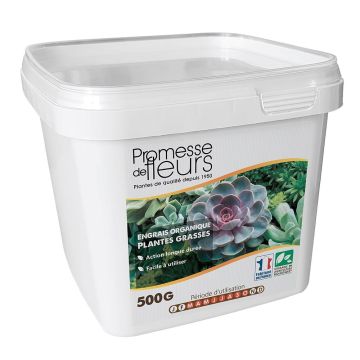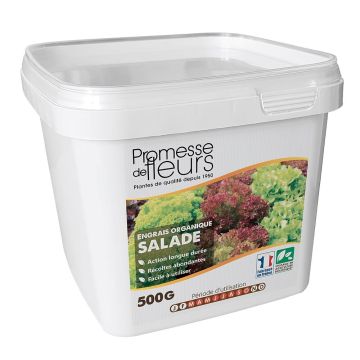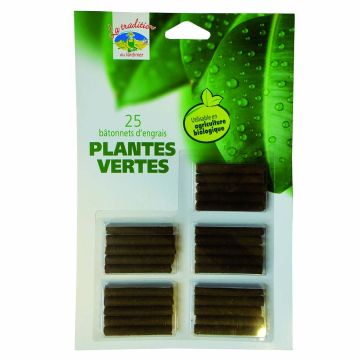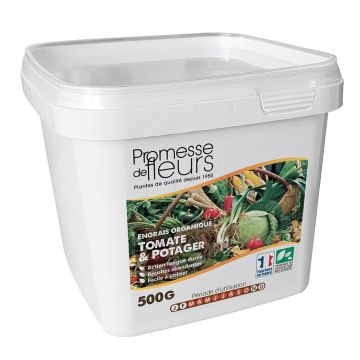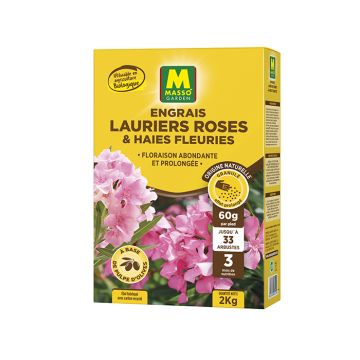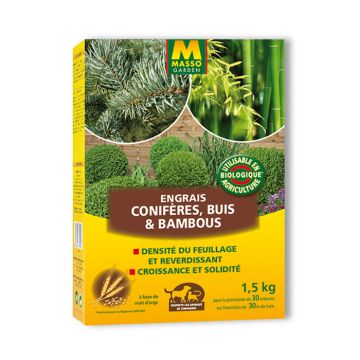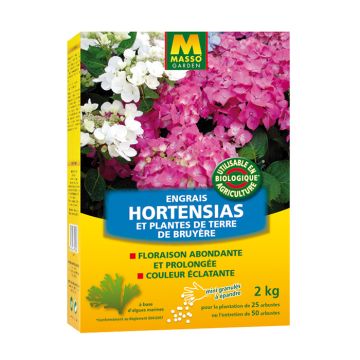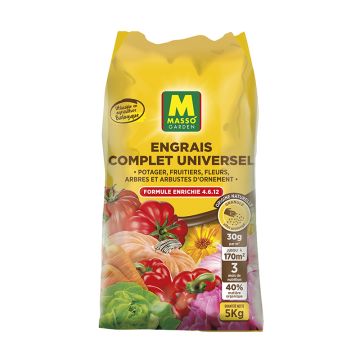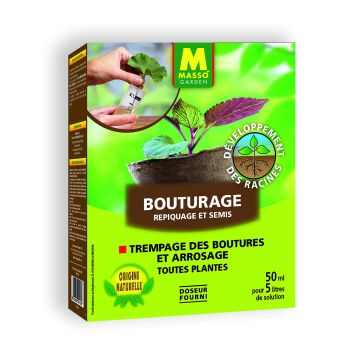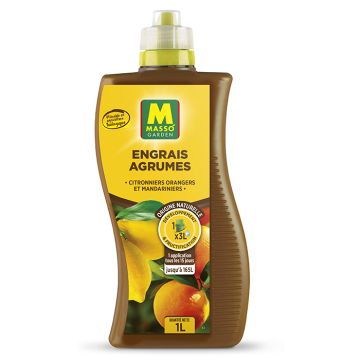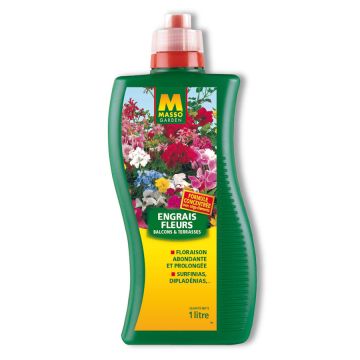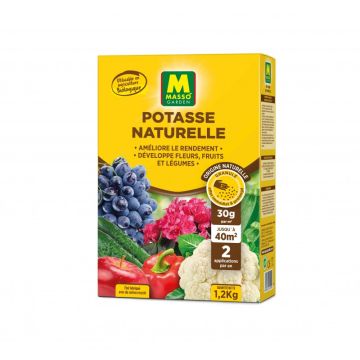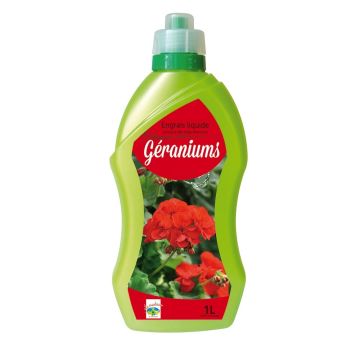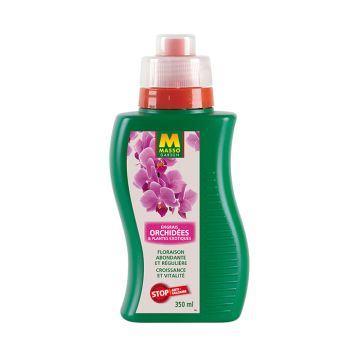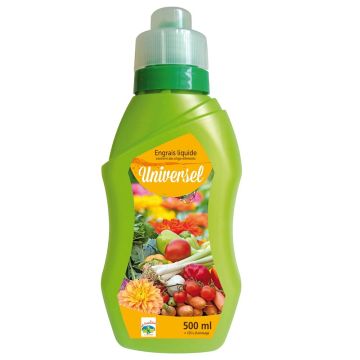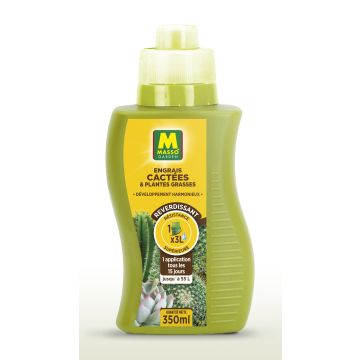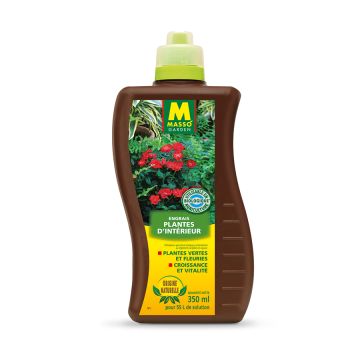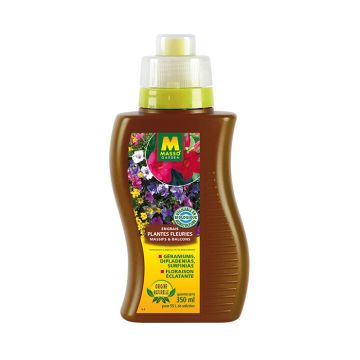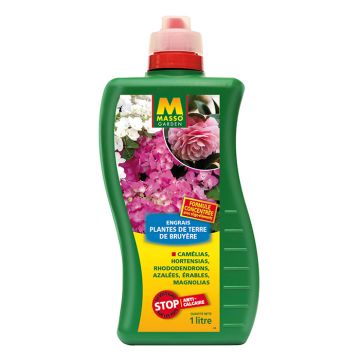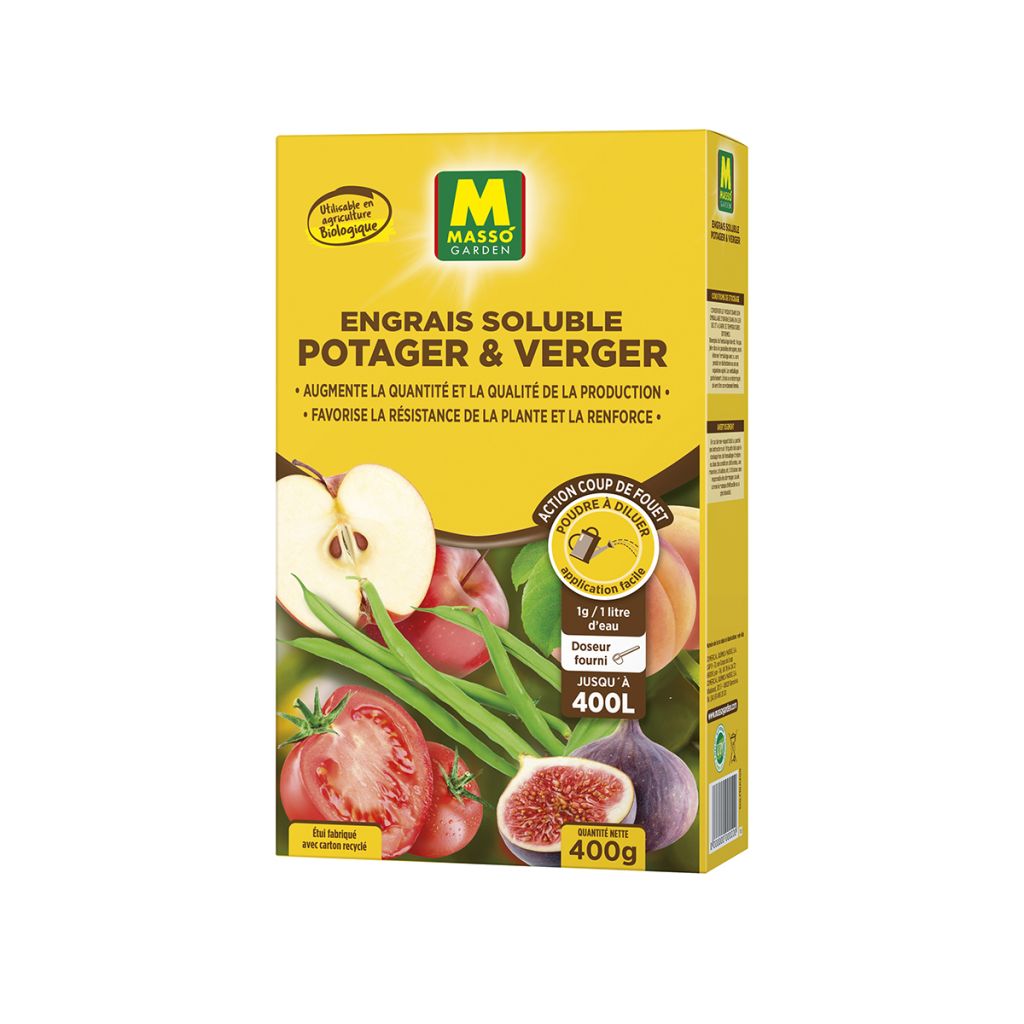

Engrais soluble Potager et Verger UAB
Soluble Fertiliser for Vegetable and Orchard - Masso Garden
Special offer!
Receive a €20 voucher for any order over €90 (excluding delivery costs, credit notes, and plastic-free options)!
1- Add your favorite plants to your cart.
2- Once you have reached €90, confirm your order (you can even choose the delivery date!).
3- As soon as your order is shipped, you will receive an email containing your voucher code, valid for 3 months (90 days).
Your voucher is unique and can only be used once, for any order with a minimum value of €20, excluding delivery costs.
Can be combined with other current offers, non-divisible and non-refundable.
Home or relay delivery (depending on size and destination)
Schedule delivery date,
and select date in basket
We guarantee the quality of our plants for a full growing cycle, and will replace at our expense any plant that fails to recover under normal climatic and planting conditions.

The applied soluble fertiliser for Vegetable & Orchard provides immediately assimilable fertilisation, perfectly adapted to the nutritional needs of vegetable plants and fruit trees. It also has a biostimulant effect that promotes natural resistance and vigour in plants. The result for plants is manifested by good development, generous flowering, and abundant and higher-quality harvests. This fertiliser, exclusively derived from plant material, respects the environment and is usable in organic and biodynamic agriculture. Use it regularly in watering. A 400-gram package can prepare up to 400 litres of nutrient solution.
This Masso Garden soluble fertiliser is a powder soluble in water at a rate of 1 gram of product per litre of water. It contains plant materials from the circular economy and 18 essential amino acids for plants' excellent health. Its organic nitrogen, of plant origin, comes from amino acids, a source of immediately available and assimilable nitrogen for root crops. Its action is very rapid, of the 'boost' type, visible in a few days. This fertiliser has the formula NPK (Mg-S) 8-7-6 (2-18), which means it contains:
- 8% of total nitrogen (N), of which 3.5% is organic nitrogen from the compost of plant and animal materials, with slow and gradual release and 0.5% is mineral nitrogen, directly assimilable by plants. This element contributes to the development of non-reproductive aerial parts of the plant, especially leaves and stems.
- 7% of total phosphorus (P) strengthens plant resistance and contributes to root development.
- 6% of potassium (K). This element is essential in root formation, flowering, and fruit development. It is indispensable for life, directly participating in cell formation and growth. Activating more than 80 enzymatic systems promotes sap circulation and transfers sugars and proteins to roots and organs such as seeds, fruits, and tubers. A well-rooted plant will better withstand drought and environmental aggressions.
Magnesium (Mg) is a significant trace element. Its role in plants is essential: It is a critical component in the correct functioning of several cellular enzymes, and it constitutes the central atom of the chlorophyll molecule, the green pigment that colours foliage and is essential for its survival. Magnesium plays a vital role in plant growth and contributes to the synthesis of plant proteins.
Usage: It is used for all vegetable and fruit crops in open ground from March to August-September, during the growth, flowering, and production periods. In maintenance, regular watering should be applied at the base of plants, always on slightly moist soil. It is also used for plants grown in pots or containers.
The product is intended for leisure gardening and is usable in organic agriculture by ECth EC regulation 834/2007. Follow the uses, doses, conditions, and precautions mentioned on the packaging.
Technical features

Tips
Tips
Other Organic cultivation-certified fertilisers
View all →This item has not been reviewed yet - be the first to leave a review about it.
Similar products
Haven't found what you were looking for?
Hardiness is the lowest winter temperature a plant can endure without suffering serious damage or even dying. However, hardiness is affected by location (a sheltered area, such as a patio), protection (winter cover) and soil type (hardiness is improved by well-drained soil).

Photo Sharing Terms & Conditions
In order to encourage gardeners to interact and share their experiences, Promesse de fleurs offers various media enabling content to be uploaded onto its Site - in particular via the ‘Photo sharing’ module.
The User agrees to refrain from:
- Posting any content that is illegal, prejudicial, insulting, racist, inciteful to hatred, revisionist, contrary to public decency, that infringes on privacy or on the privacy rights of third parties, in particular the publicity rights of persons and goods, intellectual property rights, or the right to privacy.
- Submitting content on behalf of a third party;
- Impersonate the identity of a third party and/or publish any personal information about a third party;
In general, the User undertakes to refrain from any unethical behaviour.
All Content (in particular text, comments, files, images, photos, videos, creative works, etc.), which may be subject to property or intellectual property rights, image or other private rights, shall remain the property of the User, subject to the limited rights granted by the terms of the licence granted by Promesse de fleurs as stated below. Users are at liberty to publish or not to publish such Content on the Site, notably via the ‘Photo Sharing’ facility, and accept that this Content shall be made public and freely accessible, notably on the Internet.
Users further acknowledge, undertake to have ,and guarantee that they hold all necessary rights and permissions to publish such material on the Site, in particular with regard to the legislation in force pertaining to any privacy, property, intellectual property, image, or contractual rights, or rights of any other nature. By publishing such Content on the Site, Users acknowledge accepting full liability as publishers of the Content within the meaning of the law, and grant Promesse de fleurs, free of charge, an inclusive, worldwide licence for the said Content for the entire duration of its publication, including all reproduction, representation, up/downloading, displaying, performing, transmission, and storage rights.
Users also grant permission for their name to be linked to the Content and accept that this link may not always be made available.
By engaging in posting material, Users consent to their Content becoming automatically accessible on the Internet, in particular on other sites and/or blogs and/or web pages of the Promesse de fleurs site, including in particular social pages and the Promesse de fleurs catalogue.
Users may secure the removal of entrusted content free of charge by issuing a simple request via our contact form.
The flowering period indicated on our website applies to countries and regions located in USDA zone 8 (France, the United Kingdom, Ireland, the Netherlands, etc.)
It will vary according to where you live:
- In zones 9 to 10 (Italy, Spain, Greece, etc.), flowering will occur about 2 to 4 weeks earlier.
- In zones 6 to 7 (Germany, Poland, Slovenia, and lower mountainous regions), flowering will be delayed by 2 to 3 weeks.
- In zone 5 (Central Europe, Scandinavia), blooming will be delayed by 3 to 5 weeks.
In temperate climates, pruning of spring-flowering shrubs (forsythia, spireas, etc.) should be done just after flowering.
Pruning of summer-flowering shrubs (Indian Lilac, Perovskia, etc.) can be done in winter or spring.
In cold regions as well as with frost-sensitive plants, avoid pruning too early when severe frosts may still occur.
The planting period indicated on our website applies to countries and regions located in USDA zone 8 (France, United Kingdom, Ireland, Netherlands).
It will vary according to where you live:
- In Mediterranean zones (Marseille, Madrid, Milan, etc.), autumn and winter are the best planting periods.
- In continental zones (Strasbourg, Munich, Vienna, etc.), delay planting by 2 to 3 weeks in spring and bring it forward by 2 to 4 weeks in autumn.
- In mountainous regions (the Alps, Pyrenees, Carpathians, etc.), it is best to plant in late spring (May-June) or late summer (August-September).
The harvesting period indicated on our website applies to countries and regions in USDA zone 8 (France, England, Ireland, the Netherlands).
In colder areas (Scandinavia, Poland, Austria...) fruit and vegetable harvests are likely to be delayed by 3-4 weeks.
In warmer areas (Italy, Spain, Greece, etc.), harvesting will probably take place earlier, depending on weather conditions.
The sowing periods indicated on our website apply to countries and regions within USDA Zone 8 (France, UK, Ireland, Netherlands).
In colder areas (Scandinavia, Poland, Austria...), delay any outdoor sowing by 3-4 weeks, or sow under glass.
In warmer climes (Italy, Spain, Greece, etc.), bring outdoor sowing forward by a few weeks.






























